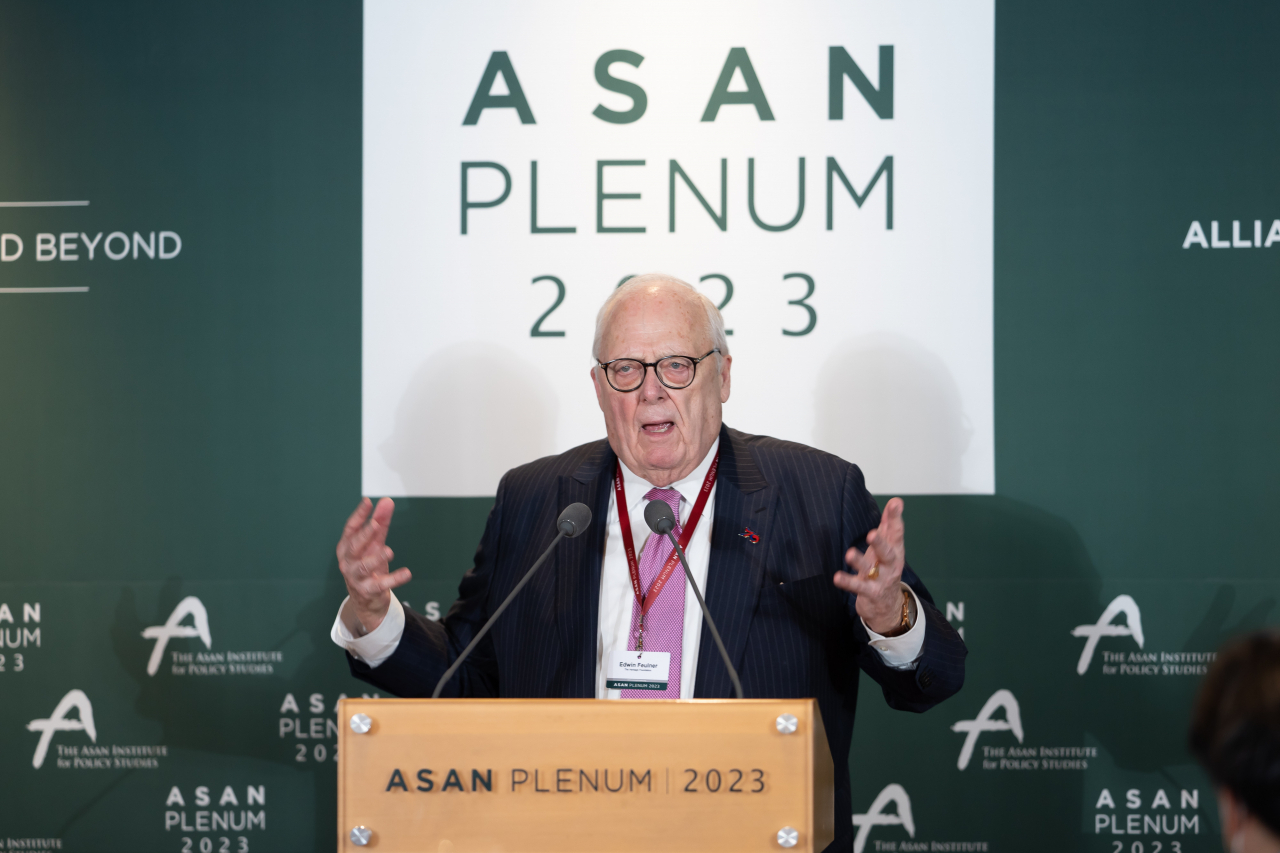 |
Edwin Feulner, founder of the Heritage Foundation, speak during a press conference at the Grand Hyatt Seoul on Tuesday. (Asan Institute for Policy Studies) |
The US should remind South Korea and its people of unwavering bipartisan support for using nuclear weapons to defend the Asian ally from North Korea’s nuclear threats, a job Washington could do better from now on to reassure Seoul while warning Pyongyang, according to Edwin Feulner, founder of the Washington-based Heritage Foundation.
The remarks by the former president of the conservative think tank came as President Yoon Suk Yeol and his US counterpart are expected to roll out a joint decision potentially giving Seoul, a nonnuclear state, a bigger say in how Washington manages its nuclear umbrella for its allies. Yoon’s state visit this week, the first in 12 years, is meant to boost confidence in the strategy, called “extended deterrence.”
“The bilateral relationship between the US and the ROK is very important and that we will make sure that enduring, reciprocal and enduring deterrence is our policy, and that we have to do everything we can to convince not only the government of the ROK, but the people of the Republic of Korea that we are in this together,” Feulner said, referring to South Korea’s official name at a press conference Tuesday in Seoul.
All the work needed to deliver on the pledge should take “whether you’re a Republican -- as I am -- or a Democrat,” Feulner added, citing growing calls in South Korea for an independent nuclear buildup to counter North Korea’s nuclear ambitions. Pyongyang says nuclear attacks are now a reality if Seoul and Washington do not meet its demands.
Feulner, who has openly championed reversing America’s 1991 withdrawal of tactical nuclear weapons from the South, said that Seoul could come up with its own nuclear weapons on a “fairly fast timeline.” International fallout like setting off a nuclear arms race in the region would be the least of such concerns, according to him.
“The controls that are necessary to make sure that there’s no accident, that there’s no premature detonation, that something awful doesn’t happen” are essential points of an “educated discussion” but are nevertheless often overlooked, Feulner noted.
The press conference, held on the sidelines of an annual forum hosted by the Asan Institute for Policy Studies in Seoul, is the latest highlight of a Seoul-Washington search for the right kind of mechanism that could work on Pyongyang, a country that has expanded its nuclear arsenal despite sanctions.
Former US national security adviser John Bolton, who gave the keynote speech at the forum, said redeploying America’s tactical nuclear weapons would work best in deterring North Korea’s escalating aggression. Doubts about the US commitment to extended deterrence are legitimate, according to the foreign policy hawk.







![[Today’s K-pop] Blackpink’s Jennie, Lisa invited to Coachella as solo acts](http://res.heraldm.com/phpwas/restmb_idxmake.php?idx=644&simg=/content/image/2024/11/21/20241121050099_0.jpg)